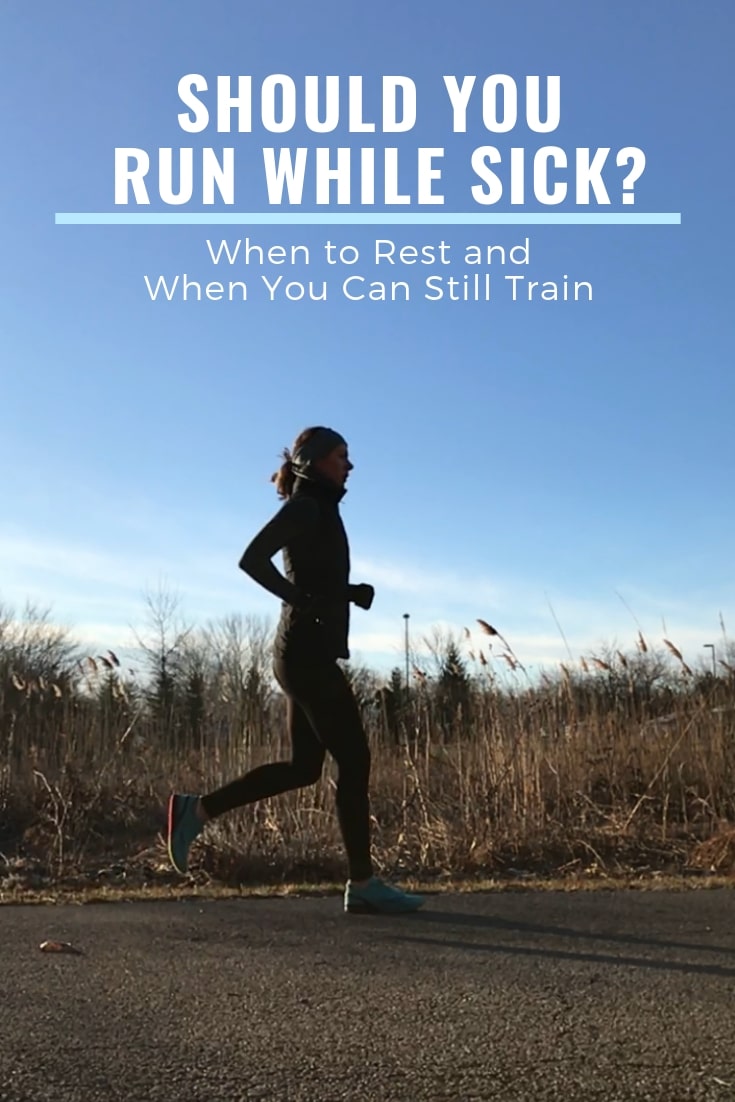Why You Might Experience Nausea After Running
Nausea after running can occur due to dehydration and intense physical exertion, causing your body to react negatively. Engaging in physical activities such as running can trigger nausea for various reasons.
Dehydration is a common culprit, as intense exercise can lead to fluid loss through sweat. Furthermore, the jostling motion of running can upset your stomach, causing discomfort and nausea. It’s essential to stay hydrated before, during, and after your run to minimize the risk of experiencing nausea.
In some cases, eating too close to your run or consuming certain foods that are harder to digest can also contribute to feeling queasy. Understanding the factors that may trigger nausea after running can help you take proactive measures to prevent it in the future.

Credit: www.goodrx.com
What Is Nausea
Nausea is a queasy sensation in the stomach, often leading to the urge to vomit. It is commonly associated with a feeling of discomfort and uneasiness. Nausea can occur before, during, or after running, and can be a common occurrence among runners.
Causes Of Nausea
- Dehydration: Lack of fluids in the body can lead to feelings of nausea while running.
- Intense Exercise: Pushing your body to the limits during high-intensity workouts can trigger nausea.
- Low Blood Sugar: Running on an empty stomach or not consuming enough carbohydrates before a long run can lead to low blood sugar levels and subsequent nausea.
- Heat and Humidity: Exercising in hot and humid conditions can contribute to nausea due to dehydration and overheating.
- Overeating: Consuming a large meal too close to your run can cause digestive discomfort and lead to nausea.
Symptoms Of Nausea
Nausea can be accompanied by various symptoms, including:
- Dizziness
- Excessive sweating
- Feeling faint or lightheaded
- Increased salivation
- Stomach discomfort
If you experience nausea persistently after running, it’s essential to identify the underlying cause and take appropriate measures to prevent it.
Understanding Nausea After Running
Potential factors:
- Dehydration: Lack of fluid intake before or during running
- Intense Exercise: Strenuous workouts can strain the body
- Poor Nutrition: Inadequate meals before or after running
Situational triggers:
- Heat and Humidity: Excessive environmental conditions
- Rapid Movement: Sudden changes in speed or direction
Understanding: Nausea may result from a combination of these factors during or post workout.
Preventing Nausea While Running
Experiencing nausea while running can be a real setback, but there are steps you can take to prevent this unpleasant sensation. By focusing on hydration and nutrition as well as incorporating a proper warm-up and cool-down routine, you can minimize the risk of feeling sick during your runs.
Hydration And Nutrition
Maintaining proper hydration is essential to avoid nausea while running. Drink water regularly throughout the day and ensure you are also replenishing electrolytes lost through sweat. Avoid heavy meals before running and opt for easily digestible snacks like fruits or energy bars.
Proper Warm-up And Cool-down
Engaging in a gradual warm-up before your run helps prepare your body for exercise and can reduce the likelihood of nausea. Similarly, a cool-down period allows your body to gradually return to its resting state, preventing any sudden shifts that could trigger feelings of sickness.
Managing Nausea After Running
After a vigorous run, it’s not uncommon to feel nauseous, and there are several factors that could be responsible. Dehydration, overeating, or low blood sugar levels may contribute to this discomfort. By managing these factors through proper hydration, balanced meals, and pre-run snacks, you can minimize or even prevent nausea after your run.
Managing Nausea After Running Nausea after running can be a frustrating and uncomfortable experience. However, there are steps you can take to manage and reduce it. Here are some effective strategies for managing nausea after running. Rest and Recovery After a strenuous run, it’s important to allow your body time to rest and recover. Resting enables your body to properly process the physical exertion, which can help reduce the likelihood of experiencing nausea. Additionally, incorporating adequate recovery time into your running routine can prevent overexertion, which is a common cause of post-run nausea. Avoiding Triggers Certain factors such as dehydration, high-intensity exercise, and consuming heavy or greasy foods before running can trigger nausea. Avoiding these triggers can significantly reduce the likelihood of experiencing post-run nausea. Staying hydrated before, during, and after a run is crucial for preventing dehydration-induced nausea. Additionally, consuming light, easily digestible meals before running can help minimize the risk of gastrointestinal discomfort. Following these strategies can help you effectively manage and reduce nausea after running, ensuring a more comfortable and enjoyable running experience.When To Seek Medical Attention
After running, experiencing nausea could indicate various underlying issues such as dehydration, low blood sugar, or overexertion. If nausea persists or is accompanied by severe symptoms like chest pain or fainting, seeking medical attention would be necessary to rule out any serious health concerns.
Persistent Or Severe Nausea
If you are experiencing persistent or severe nausea after running, it is important to pay attention to your body’s signals. While it is common to feel a little queasy or nauseated during or immediately after a run, persistent or severe nausea could indicate a more serious underlying issue.
It is not unusual to experience a bit of discomfort or an upset stomach during intense physical activity, especially if you have eaten a large meal beforehand. In most cases, this feeling will subside once your body has had a chance to recover. However, if your nausea persists beyond a reasonable amount of time or if it is accompanied by additional symptoms, it may be time to seek medical attention.
Other Associated Symptoms
Along with persistent or severe nausea, you should also be alert to any other symptoms that may accompany it. While it is not uncommon for exercise to cause some temporary discomfort or physical exertion, certain symptoms may indicate a more serious condition that requires medical attention.
If your nausea is accompanied by dizziness, fainting, chest pain, or difficulty breathing, it is important to consult a healthcare professional. These symptoms may be signs of a more serious condition such as dehydration, heat exhaustion, or even a heart problem. It’s better to err on the side of caution and seek medical advice to rule out any serious underlying issues.
It’s worth noting that if your nausea and associated symptoms persist or worsen even after you have rested and fully recovered, it is crucial to consult a healthcare professional. They can conduct a thorough evaluation to determine the cause of your symptoms and recommend appropriate treatment or further testing if necessary.

Credit: theconversation.com

Credit: www.goodrx.com
Frequently Asked Questions Of Why You Might Experience Nausea After Running
Why Do I Feel Nauseous After Running?
Feeling nauseous during or after running is common and can be caused by a variety of factors such as dehydration, overexertion, or the release of certain hormones.
How Can I Prevent Nausea When Running?
To prevent nausea while running, make sure to stay hydrated, eat a light meal or snack beforehand, warm up properly, and avoid running in extreme heat or on a full stomach.
Is It Normal To Vomit After Running?
Vomiting occasionally after running may not be cause for concern, as it can be a result of pushing your body to its limits. However, if vomiting becomes frequent or severe, it is important to consult a healthcare professional.
Conclusion
Experiencing nausea after running can be caused by various factors. It’s important to listen to your body and make necessary adjustments to your routine. By staying hydrated, eating well, and taking gradual steps, you can minimize the chances of feeling nauseous after a run.
Don’t hesitate to consult with a healthcare professional if nausea persists.







